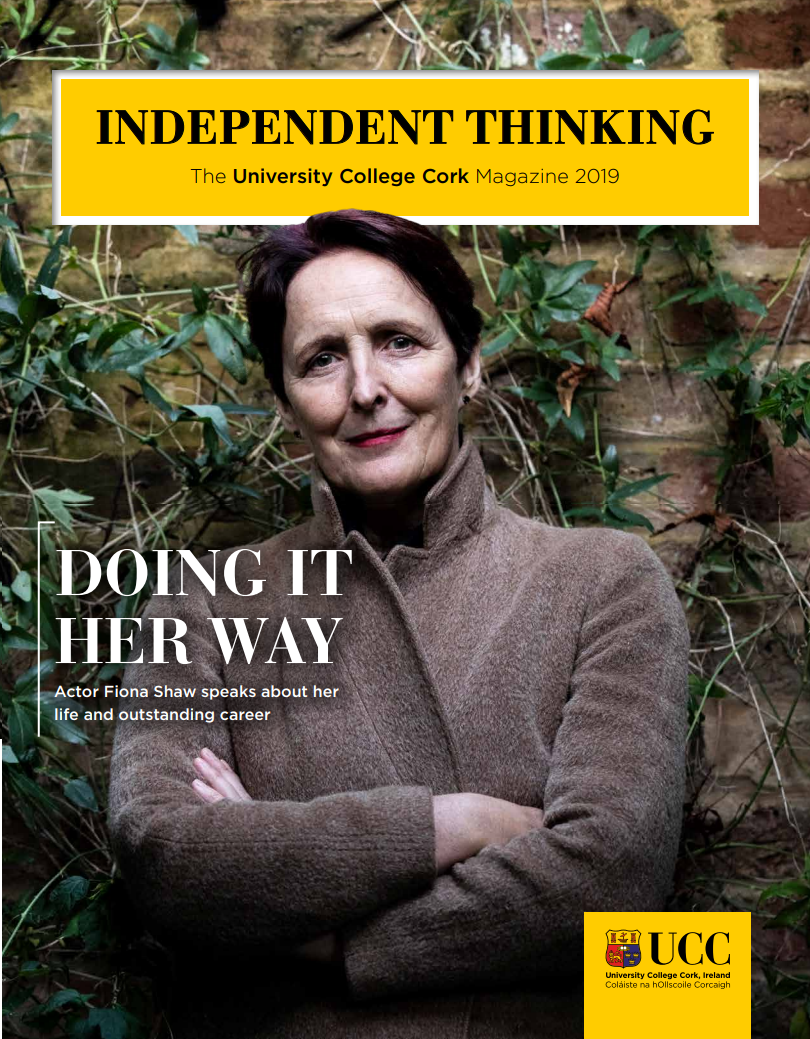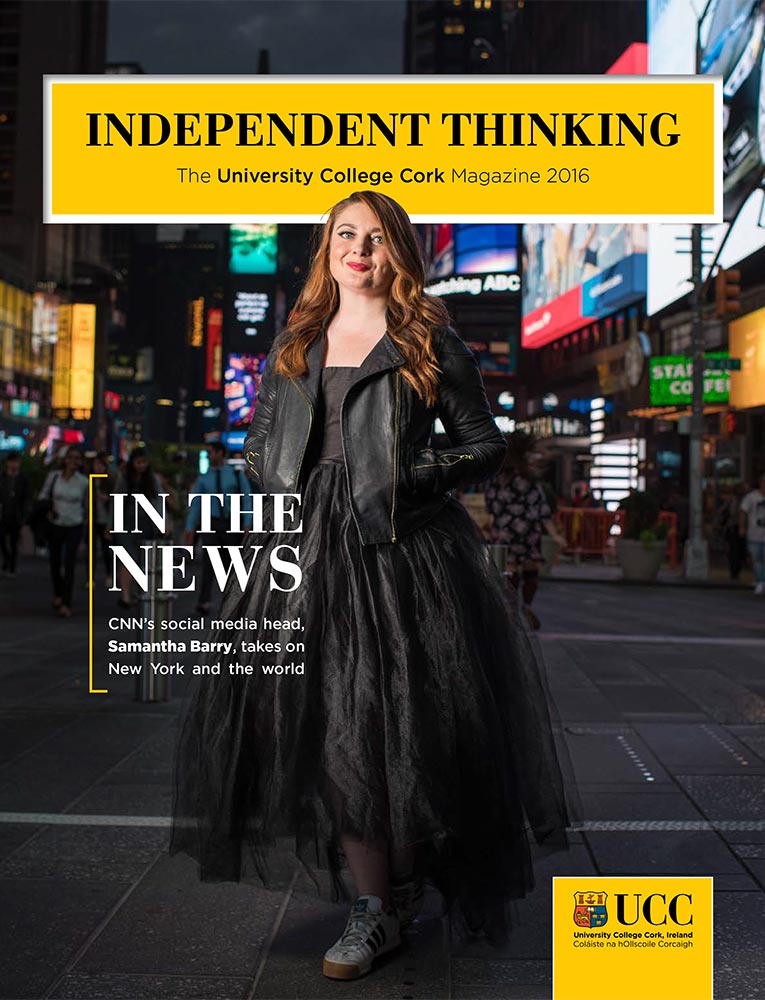Breaking New Ground
As life opens up once again on campus, Professor John O’Halloran, President of UCC, discusses steering the university through the most difficult period in its history, and his ambitious plans for the future. In conversation with Marjorie Brennan.
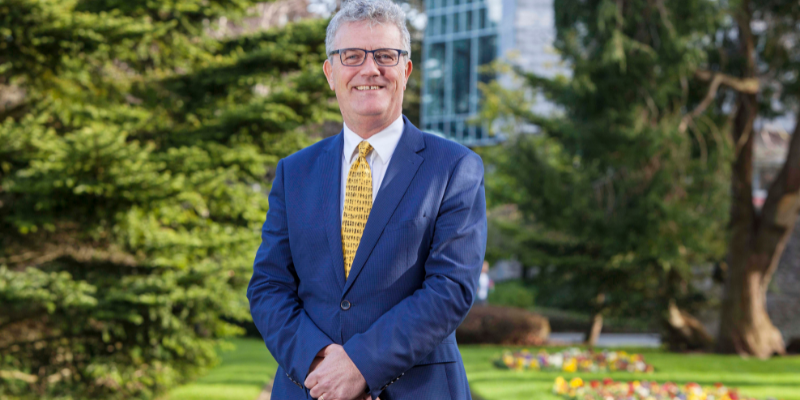
Leading a university is a challenging task at the best of times; guiding one through a pandemic is at a whole other level. For Professor John O’Halloran, President of UCC, steering the college through the most challenging chapter in its recent history has demonstrated what the university is capable of when everyone works together.
“None of us knew what was coming. I am really proud of what UCC has done. We made hundreds of decisions on that day in March 2020, the day after it was announced that the country would shut down for two weeks. We wanted to give certainty where uncertainty existed, even though none of us knew what lay ahead. I am proud of what we achieved. If there is one thing I took away from the pandemic, it is that we can achieve an enormous amount together if we have that sense of hope, purpose and respect,” he says.
John was officially appointed to the office of President of UCC in August 2021, having carried out the role on an interim basis since September 2020. He has taken pleasure in seeing the college come back to life in recent months. One of the hardest things about being on site for the pandemic was experiencing the sense of emptiness that engulfed the usually vibrant campus.
“It was really sad to see how empty the place was. It was completely shut down from January to May last year. It is great to be back. Having the conferring ceremonies last autumn was fantastic – that gave life to everyone, including me.”
One of John’s priorities is to restore the campus experience that is such a vital part of college life.
“Something that really stopped me in my tracks was that somebody mentioned to me that second-year students in UCC today, the last formal controlled examination they had was their Junior Cert. We may need to consider an active recovery plan because we are reasserting the role of the campus experience. One of the things I feel really strongly about is what I call life-wide learning; there are other dimensions to being good people, and good citizens. Not everybody has those skills and talents – they happen in social situations, in group learning, in fieldwork, beyond the curriculum, in clubs and societies, and in the cafés. It is really important that we don’t lose sight of that piece of the learning journey.”
"I am proud of what we achieved. If there is one thing I took away from the pandemic, it is that we can achieve an enormous amount together if we have that sense of hope, purpose and respect."
John’s own learning journey began in the Cork suburb of Ballinlough, where he grew up, the second-youngest of eight. He attended Crab Lane primary school and, later, Douglas Community School, and was one of the first in his family to go on to third-level education, following his passion for birds and wildlife in studying zoology and ecology at UCC.
“I wanted to learn more, I was hungry for knowledge and I had a passion for understanding ecology, in particular. I started as an undergraduate at UCC in 1979, and I had been birdwatching since 1977. It was quite an unconventional thing to do back then, to be honest, whereas now, ecology and the environment are central to the future of the planet. If you wait long enough, the world will come around to you again,” he says.
After completing his undergraduate studies and a PhD at UCC, John went to work at the University of Wales in Cardiff, but it wasn’t long before his alma mater beckoned once again.
“It was in late 1989, I remember coming down off the mountains in mid-Wales where I was researching and there was a message from Maura Mulcahy, the Professor of Zoology in UCC, saying she had just been appointed Vice-President at UCC, and would I take a temporary contract to cover her teaching. Roll on 30 years and I’m now President of UCC because of her act of generosity and her inspiration.”
John’s academic expertise, which was forged in the field of biological, earth and environmental sciences, has informed his whole career, and diversity and sustainability, which are both so important in ecology, form the core elements of his strategic plan, UCC 2022: Delivering a Connected University, which aims to position the university for long‐term success.
“Diversity in ecology is the single most important thing, and the idea that the more diverse something is, the more stable it is, is an ancient key feature of all ecological systems. Each animal or plant has a role in an ecosystem and it is their diversity that makes the ecosystem function. If we remove some of that diversity, then we are in trouble. A few years ago, we had to import grass as Ireland ran out of grass one spring because of particular environmental conditions — a dry spring and particularly poor silage. People wondered how this could happen — it happened because of a lack of diversity in the meadows. Before, you would have more than 100 species of grass in a meadow, now you have about five. When some disturbance comes, there is no resilience or capacity in the system to recover.”
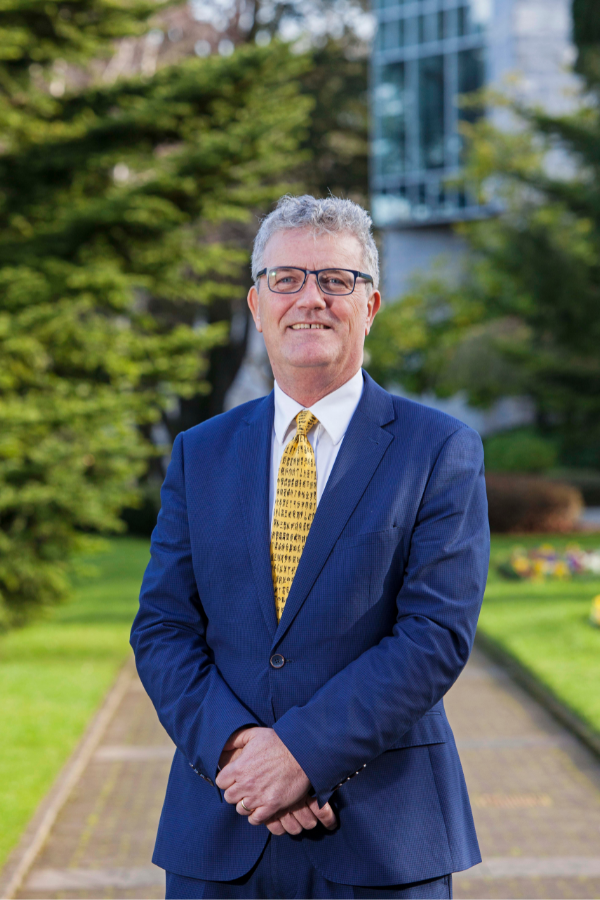
The idea of a connected university is close to John’s heart. While the pandemic meant that in-person learning was no longer practical, being able to reach beyond the physical perimeters of the campus meant John could communicate with a greater number of students, and staff, than would normally be possible.
“I have hosted virtual town hall meetings, with more than 1,000 staff attending, and these have been a wonderful way to stay connected during times of remote working and to retain a sense of community. It is important too that students recognise that we are a community and that I am part of that community. We are in this together. We live this principle every day through our sustainability agenda, which is something I am passionate about. We have a very successful Green Forum in the university that is student-led, research-informed and practice-focused that delivers on our green agenda in learning, research and operations. That has been our mantra for 10 years now, and it has put us at the top of the world rankings for sustainability in higher education.”
Continuing to open up access to higher education is also a priority for John, although he acknowledges that it is not the right path for everyone.
“I am in the first generation of our family to go to university — I have seen the power of education first hand. I also respect the fact that not everybody needs or wants to go to university. There are many talented people I know who didn’t. At UCC we have a very sophisticated series of access programmes across a whole range of areas, including HEAR (Higher Education Access Route) and DARE (Disability Access Route to Education). Could we do more? Absolutely. One of the recent initiatives at UCC is the Autism Friendly University Project we are involved in which is focused on making the university more autism-friendly. Again, talent sits in many places, and we must work to remove barriers to access.”
John stresses that learning takes many shapes and needs to accommodate the ebb and flow of life.
“We also need to recognise the importance of knowledge and education outside of university – that could be life-wide learning, work-based learning or work-integrated learning – where we give people credit for experience in the workplace, and they come back in and build on that with micro-credentials. This means that instead of awarding just degrees, certificates and diplomas, we can award module elements and they can be assembled into a meaningful qualification in the future. Not everyone can choose to come in and spend the whole day here and go back out — some people have to come in at other times, maybe they have caring responsibilities or other commitments or accommodation issues. We have got to find a new way to engage the learner and find that piece of learning that takes place in a rich digital environment and a rich campus environment.”
One of John’s proudest achievements is the Quercus Programme for Talented Students, which he founded.
“Quercus is the Latin for ‘oak’, and the idea is that our students grow from acorns into mighty oaks. You have someone like Joanne O’Riordan who was awarded a scholarship under the Active Citizenship strand of Quercus, and has gone on to change the world – she has been incredibly successful.”
"The joy for me every year is hearing the new voices coming in – 5,000 students, with new ideas, new initiatives, new challenges. We practise what we preach, we operate as a community that speaks to values of equality, diversity and inclusion, energy conservation, waste minimisation and our global footprint."
John also points to the increasing number of students who come to UCC through pathways beyond the CAO. Making sure those students are doing courses that are right for them is equally important, he says.
“Some 23% of our students are admitted through non-traditional pathways and the university is enriched by that diversity. The other part of it then, is getting students on to the correct programme for them. UCC has the highest retention rate of first year into second year of any Irish higher education institution – it was 94%, and went down to 92% during the pandemic, which is understandable, but it is still fantastic. It is also important that if you are in the wrong programme, you have the capacity to transfer. We have a really good retention officer who meets students who are questioning whether they are in the right programme. There is also a new online programme we have pushed out to all schools, to help prospective students make the best choices for them and their career paths.”
With the pandemic hopefully in the rear-view mirror, there are other challenges facing the university, not least of which is funding, says John.
“Funding remains a huge challenge, in terms of supporting the students but also our ambitions for capital investment, accommodation and those other things. It is not that we are looking for handouts. The economic value of UCC is significant; we contribute €2.3 million per day to the local economy. This is about investing in people, securing our future and contributing to democracy and society. It is not all about income, it is about the culture and the milieu of the city and beyond, that the people stand out as citizens and graduates, to make the world a better place. That is what education is fundamentally about.”
John is upbeat and positive about the future of UCC and is especially struck by the dynamism of its students and the power they have to make a difference, especially in the face of the global threat posed by climate change.
“The joy for me every year is hearing the new voices coming in – 5,000 students, with new ideas, new initiatives, new challenges. We practise what we preach, we operate as a community that speaks to values of equality, diversity and inclusion, energy conservation, waste minimisation and our global footprint. It is important that we live that authentically. Listening to the student voice and being informed by it and challenged by it is crucial. I feel privileged. The modern world has taught us that learning can happen in many ways, from peer to peer, but you also get reverse learning where students teach the faculty. The notion that we might learn from younger people how to solve the climate change problem, is real; but I am also aware of the anxiety around that – UCC was the only university in Ireland that had a formal presence at the COP26 climate summit. I set up a COP26 President’s Group and we had eight people who represented UCC in Glasgow, of which four were students.”
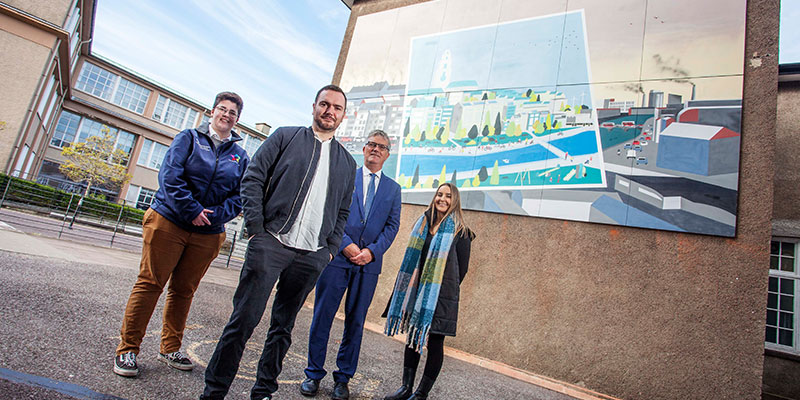
As part of securing a sustainable future for all, John has launched UCC Futures, an ambitious programme of academic recruitment that aims to build a foundation for economic, societal and cultural resilience and prosperity. The first step in the programme was to begin recruitment of faculty for a Radical Humanities Laboratory, which will work across disciplines to explore global societal crises and develop holistic and transformative solutions.
“If you want to secure the future, particularly on climate change, you must speak to both the heart and the head – the humanities enable us to have that entry point into something that is really deep and meaningful. Take artificial intelligence as an example – we can design all the systems, but it is also about the ethics, the sociology, the human interaction. In my experience, at least, the richness that comes from our humanities scholarship enables that to happen in meaningful ways,” says John.
With such an extensive slate of plans and initiatives, John is kept busy. He acknowledges the support of his three grown-up children, David, Andrew and Ailish, and his wife Deirdre Murray, the director of the National Cancer Registry, who is a regular visitor to the UCC campus in her role as Professor of Cancer Epidemiology at UCC.
“As my children say, I’ve never left university – it is a part of me and part of who I am. It does get tricky at times in terms of work-life balance, but I have a great team around me. For me, being the president of a university isn’t about what I am, it’s about what I can do. It is not a nine-to-five job, nor would I want it to be.”
When he can, he escapes to County Kerry, to recharge his batteries and observe the beauty of ecology in action.
“I enjoy seeing rare birds and in Ballinskelligs, we had some very interesting, rare bird sightings recently. What I like is the sense of being outdoors, being with people and sharing that. I am licensed to capture and ring birds. When I have the privilege of having a bird in my hand, perhaps a swallow, that I know has been across the Sahara Desert seven or eight times – I find that inspirational, that this fragile little animal that I put a ring on will fly off and find its way back again. That sense of connection, with nature, with our global community, with ecology, is so important and we can learn so much from that.”
For more information, please visit the President's Office website.
Photography: Diane Cusack

